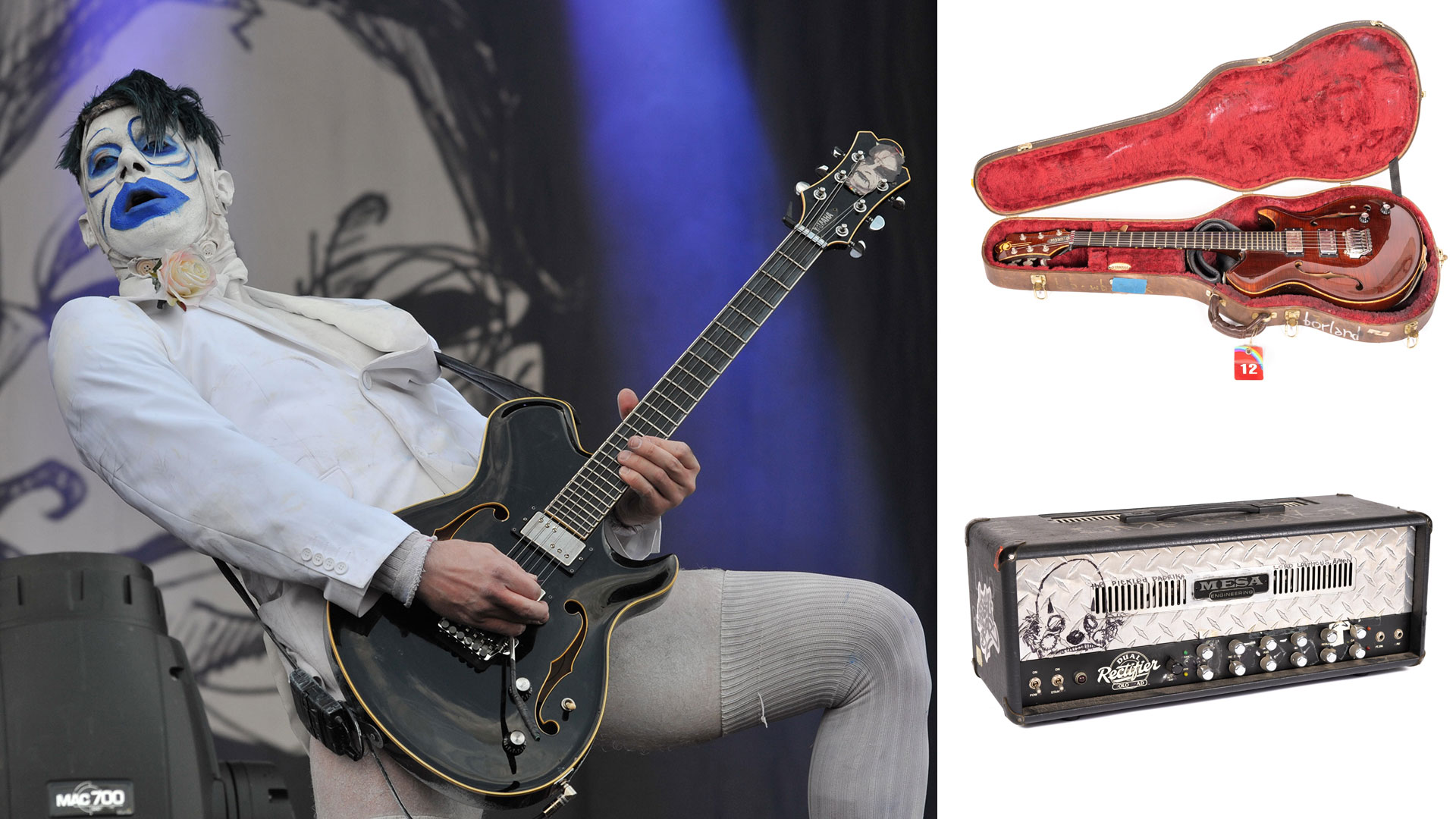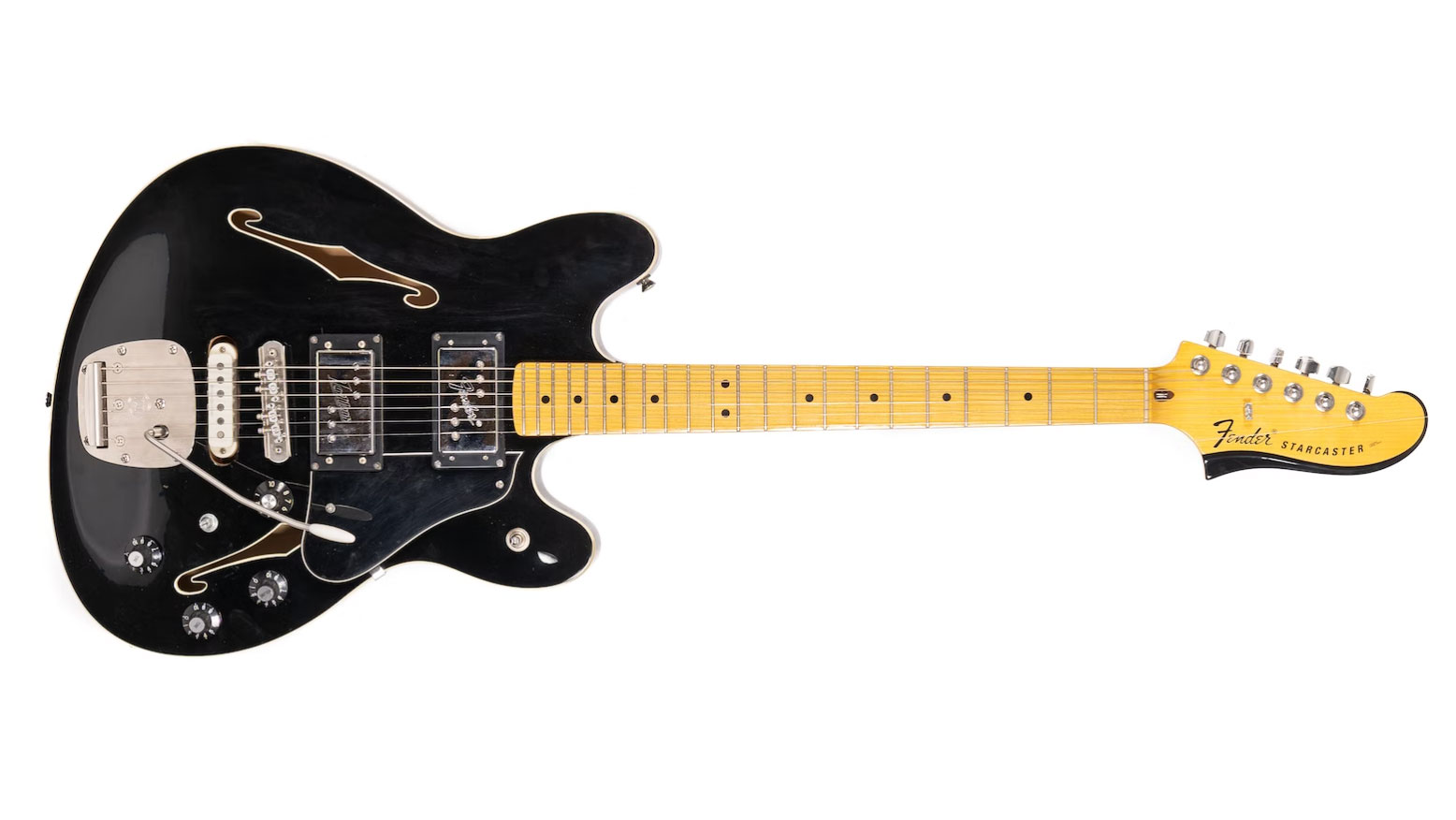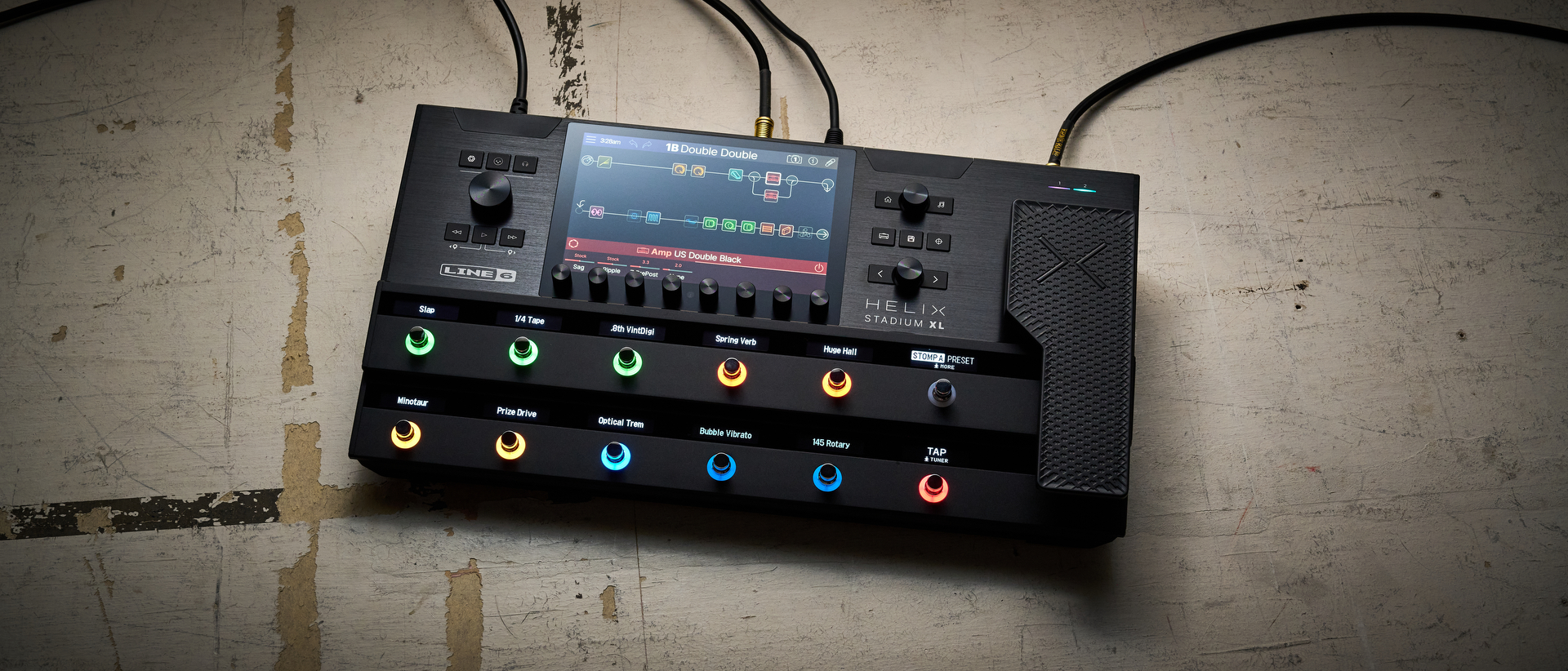Wes Borland is selling off a huge gear haul, including the Mesa/Boogie head used on Three Dollar Bill, Y'all and a host of custom and prototype guitars
The Limp Bizkit guitarist has announced an enormous gear sale – and you might be able to afford some of it

Wes Borland has launched a huge gear sale and is selling off some real gems from his recording and touring career, including his first ever Mesa/Boogie guitar amp head – as used on Limp Bizkit’s 1997 debut album Three Dollar Bill, Y'All.
“I have been a gear head for 25 years,” notes Borland of the collection. “My mother calls me a hoarder...”
Now the guitarist is feeling the need for a clear-out and has launched a sale with 28 separate lots, covering everything from artwork, to guitar amps, effects and some appealing prototype and custom electric guitars.
“This is what happens when you’re a musician who’s able to buy gear for a long time,” he says, talking through the lots. “This is almost embarrassing to me, because it’s not even all of my gear.”
The headline item is the aforementioned Mesa/Boogie Dual Rectifier head, which like many of the items, comes adorned with Borland’s doodles.
“This was my first touring head,” says Borland. “Three Dollar Bill was recorded on this. It was the only head I had live at one point – just going out [on the road] with no backup.’
At the time of writing, it carries an estimate of $4,000 to $8,000.
All the latest guitar news, interviews, lessons, reviews, deals and more, direct to your inbox!
Elsewhere, there’s a beautiful custom shop prototype (the second one made) of Borland’s signature guitar, the Yamaha CV820WB, which was built in LA.
“It was kind of based on a [Fender] Starcaster; in some ways based on a German carve on this weird single cutaway-style body and having this weird offset look.”
It was also used on the road with Limp Bizkit for a four-year period, running 2009-2013, before he began favoring Jacksons. “I’ll miss it, but it’s also been in storage so long that I have to be an adult here,” notes Borland.
The Yamaha carries a (broad) estimate of $8,000 to $20,000.
For our money, one of the most interesting lots is the Selmer Zodiac Twin Thirty. Borland notes it was purchased on the recommendation of Rick Rubin during the early stages of the Chocolate Starfish... sessions.
The Zodiac Twin Thirty is a British-built 2x12 combo amp that dates from the mid-’60s. The amps are notable for their tone selector buttons, which bypass the rotary controls.
“Rick Rubin was a big reason [for buying this]... He was like, ‘Billy Corgan hoards these things,’” says Borland. “I really liked the Contra Bass and High Treble settings. The High Treble is just this glistening, tinny, almost radio-like signal, where as the Contra Bass is just super in-your-face, which I love.”
There are four inputs, split across two channels, plus two 12” Celestion speakers and Borland’s has a built-in power convertor. It also features a footswitchable tremolo circuit, which has a pulsing light when engaged.
The Selmer has an estimate of $3,500 to $6,000, which isn’t bad when you consider a 1963 build is currently listed on Reverb for $3,848. It is also the thing that Borland says he is “having the most difficult time parting with.”

The above barely scratches the surface of the sale, though. There’s a heavily modded China-built Fender Starcaster, a Guild 12-string, an array of Orange heads, a USA Jackson Soloist in green sparkle... the list goes on – all the way down to a modded Squier Jaguar and Hohner nylon-string, which have more attainable prices. Then there’s the artwork, the stage-worn costumes and even a full drum kit.
Whether you’re tempted into bidding or not, it’s a fascinating cross-section of the gear accumulated by one of rock’s true individuals.
Head to Analogr to view the full Wes Borland collection.

Matt is Deputy Editor for GuitarWorld.com. Before that he spent 10 years as a freelance music journalist, interviewing artists for the likes of Total Guitar, Guitarist, Guitar World, MusicRadar, NME.com, DJ Mag and Electronic Sound. In 2020, he launched CreativeMoney.co.uk, which aims to share the ideas that make creative lifestyles more sustainable. He plays guitar, but should not be allowed near your delay pedals.



